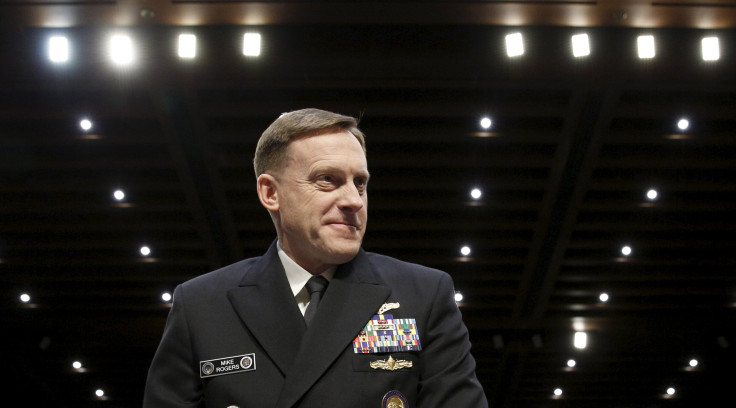Russia Changed The Election? NSA Says WikiLeaks, 'Nation-State' Influenced US's Vote

The head of the National Security Agency said a "nation-state" influenced the U.S. presidential election in a deliberate attack on Democratic nominee Hillary Clinton. NSA director Michael S. Rogers was almost certainly alluding to Russia, considering the Homeland Security Department and the Office of the Director of National Intelligence released a statement in October blaming the Kremlin.
"There shouldn't be any doubt in anybody's minds, this was not something that was done casually, this was not something that was done by chance, this was not a target that was selected purely arbitrarily," Rogers said Tuesday night at a Wall Street Journal event in New York. "This was a conscious effort by a nation-state to attempt to achieve a specific effect."
"A conscious effort by a nation-state to attempt to achieve a specific effect" NSA chief on WikiLeaks https://t.co/kvmrTyVE30 #WSJCEOCouncil pic.twitter.com/AT2pxK2ROR
— The Wall Street Journal (@WSJ) November 15, 2016
WikiLeaks released tens of thousands of emails related to Clinton's campaign and its chairman, John Podesta, throughout the election. The U.S. intelligence community said this was all part of a plan to change the results of the election.
"The U.S. Intelligence Community (USIC) is confident that the Russian Government directed the recent compromises of e-mails from US persons and institutions, including from US political organizations," the October statement read. "The recent disclosures of alleged hacked e-mails on sites like DCLeaks.com and WikiLeaks and by the Guccifer 2.0 online persona are consistent with the methods and motivations of Russian-directed efforts. These thefts and disclosures are intended to interfere with the US election process."
President-elect Donald Trump, of course, stunned Clinton with an election night victory. Trump has been complimentary of Russian President Vladimir Putin, saying his authoritarian leadership was stronger than the efforts of President Barack Obama.
In fact, one of the president-elect's first calls post winning the presidency was with Putin. A press release from Trump's camp stated the two talked about "a range of issues including the threats and challenges facing the United States and Russia, strategic economic issues and the historical U.S.-Russia relationship that dates back over 200 years"
© Copyright IBTimes 2024. All rights reserved.






















